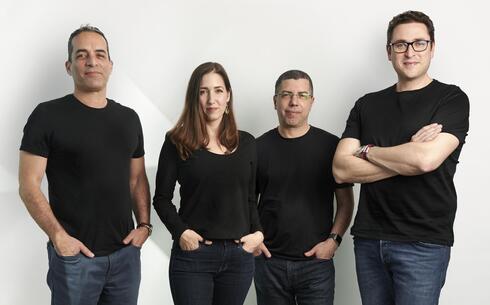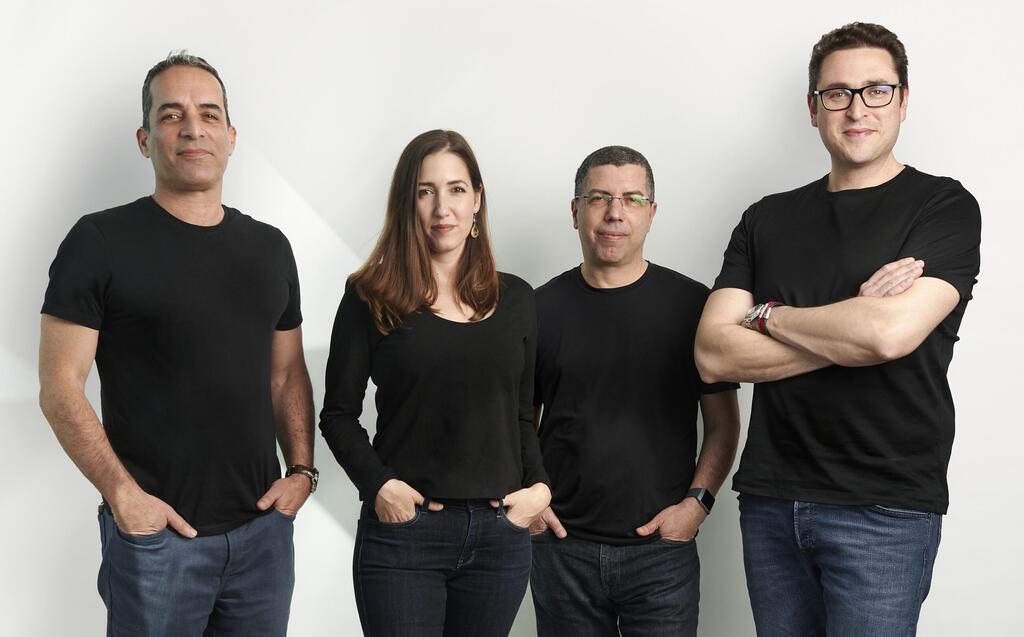
2025 VC Survey
“Israel exits this war more powerful and stable than ever,” say Glilot Capital Partners
Lior Litwak, Managing Partner at Glilot Capital, joined CTech for its 2025 VC Survey to share insights and predictions for Startup Nation in a post-war future.
“We expect a massive influx of foreign investments in 2025, as global large investment firms renew their focus on the Israeli economy and the local venture ecosystem in particular, regaining and surpassing previous levels of engagement before the 2022 downturn,” said Lior Litwak, Managing Partner at Glilot+, the early-growth fund of Glilot Capital. “We already see much interest from foreign funds in resuming their direct activity here, and many of our own portfolio companies are in active discussions for follow-on investments by foreign funds.”
Litwak joined CTech for its 2025 VC Survey, where prominent investors and firms are invited to share insights and predictions for the year ahead. With an eye lasered on the war and its impact, the Glilot team is optimistic that the tide is turning for Israel and its future.
“At the same time, M&A activity has remained steady during the war, and we see continued interest by global tech leaders in Israeli innovation during 2025. Overall, Israel exits this war – one of the longest and most brutal in its history – more powerful and stable than ever,” he said.
You can catch the whole interview below.
Fund ID
Name of fund/funds: Glilot Capital Partners
Total sum of the fund: $1B
Partners: Kobi Samboursky, Co-Founder & Managing Partner; Arik Kleinstein, Co-Founder & Managing Partner; Nofar Amikam, Managing Partner - Glilot Seed; Lior Litwak, Managing Partner - Glilot+
Notable/select portfolio companies (active): Cyolo, Guardz, Healthee, Noma, ScaleOps, Seemplicity
Notable exits: Entitle by BeyondTrust, Cider Security by Palo Alto Networks, Ermetic by Tenable, IntSights by Rapid7
2024 is over. How can you summarize it in terms of the Israeli high-tech industry?
2024 has been a year of resilience and perseverance for the Israeli high-tech industry. Coming out of a challenging Q4 2023 and despite the ongoing implications of the war, startups and established tech companies alike adapted quickly and continued to deliver cutting-edge solutions. 2024 saw a boom in early-stage startup creation and seed activity, while early-growth companies continued to grow sales abroad with little to no impact on R&D execution in Israel. As the year is wrapping, it is clear that the tech sector maintained its global leadership position, particularly in Israel’s top segments of cybersecurity and AI.
Looking ahead to 2025 - What challenges and opportunities await the Israeli high-tech sector in the coming year, and how are you, as investors, preparing for them?
Israel is starting 2025 at a pivotal moment in its history. Several of our most fierce enemies - Hamas, Hezbollah, Syria, and even Iran (and its remaining proxies) - are either destroyed or severely handicapped. Much of Israel’s military success following the massive shock at the October 7th attack could be attributed to technological superiority and cybersecurity ingenuity, nurtured in the IDF over many decades. This has been the first “Cyber War”, and Israel’s decisive victory positions it well to benefit from the upcoming cybersecurity boom that will arrive following the war.
In the short term, challenges still remain – Israel will need to diversify its economy beyond the high-tech sector and address pressing issues such as government funding and foreign travel constraints. Iran continues to be a significant concern, particularly regarding its nuclear program. However, the Trump administration is expected to support Israel’s efforts against the regime’s threats.
We expect a massive influx of foreign investments in 2025, as global large investment firms renew their focus on the Israeli economy and the local venture ecosystem in particular, regaining and surpassing previous levels of engagement before the 2022 downturn. We already see much interest from foreign funds in resuming their direct activity here, and many of our own portfolio companies are in active discussions for follow-on investments by foreign funds. At the same time, M&A activity has remained steady during the war, and we see continued interest by global tech leaders in Israeli innovation during 2025. Overall, Israel exits this war – one of the longest and most brutal in its history – more powerful and stable than ever.
How will new American leadership affect the global high-tech industry or economy? And where does this place Israel and its entrepreneurs?
From a geopolitical standpoint, the Trump administration’s pro-Israeli sentiment has already helped to alleviate some of the short-term risks from the war and is expected to drive all parties to focus on economic rebuilding over the next few years. As a result, we believe that Israeli high-tech will enjoy several years, if not over a decade, of growth and prosperity. National defense investment will grow and remain high, strengthening the very tailwinds on which the Israeli cybersecurity and high-tech economy were developed.
We also anticipate that the new American leadership will promote a conservative fiscal policy, pushing for lower taxes and continued reduction in inflation and interest rates. This can help to reopen the IPO market for successful late-stage Israeli tech companies while allowing global tech leaders to continue and increase their M&A efforts in Israel.
What are the three most important things the Israeli government should do today to accelerate the high-tech engine in the coming year?
- Seek bipartisan support for broad constitutional reforms that would alleviate any concerns by foreign investors, such as those raised in 2023 before the October 7th attack.
- Assist the local venture capital economy by reducing or eliminating any blocks for foreign and local LP investments.
- Further encourage and incentivize the migration of Jewish talent to Israel due to rampant antisemitism abroad, especially in Europe.
Are there new sectors you see as relevant? Are there any fields you anticipate will weaken significantly in the coming year?
Cybersecurity is more relevant now than ever, and the “democratization” of Generative AI capabilities two years ago has only made attackers more dangerous, as they can now operate at scale. We believe small and medium businesses (SMBs) will be most susceptible to attacks during 2025, and must seek better protection that is currently reserved for large enterprises. Our portfolio company Guardz, for example, addresses that exact need.
At the same time, we are likely to see fewer niche cybersecurity solutions and a continued flow of capital towards broader cybersecurity platforms. Startups that attempt to solve a specific cybersecurity issue with limited market reach will be less likely to get funded, especially in growth stages. However, as organizations look to consolidate their cybersecurity stacks and improve their operational efficiencies, workflow automation tools, such as those offered by our portfolio company Seemplicity, will continue to gain adoption within cybersecurity teams.
Is Israel missing out on the AI revolution in the global arms race? If not, what should the local industry focus on to join the global race?
Israeli talent has always excelled in both academic achievement, and, perhaps even more so, in engineering innovation. While Israeli academic institutions have contributed to the AI revolution, the country's exceptional problem-solving engineering talent is uniquely positioned to transform scientific advancements into practical AI-based solutions. Over the past year, we have seen dozens, if not hundreds, of new Israeli startups leveraging cutting-edge foundational models developed abroad, to tackle real-world business challenges – we even invested in a few. As foundational AI technologies for horizontal use cases become increasingly commoditized, we believe the greatest value will come from specialized tools and solutions tailored to specific needs. Israeli startups, particularly in cybersecurity, are well-positioned to lead this effort.
Could the global IPO drought end in the coming year?
Many signs suggest that 2025 will see renewed IPO activity. Inflation is gradually declining, and central banks across the world, particularly the Fed, are expected to continue lowering interest rates more predictably. Meanwhile, companies waiting for the IPO window to reopen are focused on improving KPIs and governance, better preparing them for public markets – unlike many startups that went public (either through an IPO or worse, a SPAC) before the 2022 market shift. We know that a good number of companies are already working privately with the SEC on their filings, and trust that once the new administration steps in and current uncertainty drops, we will see significant IPO activity in H1 of 2025.
From an investor's perspective: will the coming year be better for early-stage startups or more mature companies?
Both. It is a great time to start a company, with less competition for VC attention and many opportunities to build on war-era innovations. At Glilot we’ve seen heightened activity in 2024 that we expect to continue into 2025, and our early-stage colleagues share this view.
As for growth companies, the reopened IPO window and overall investment interest in the Israeli market will drive activity in 2025, with more funding and strategic opportunities emerging. One challenge for growth companies is the current valuation environment, which differs from two years ago. Nevertheless, we believe that solid growth companies that have improved efficiency in 2023-2024 will be well rewarded by local and global investors.
Did you raise fund money in 2024 for an existing fund or a new one? What are your expectations regarding this matter for 2025?
2024 was a positive year for us. I am not at liberty to discuss our future fundraising plans, but I can share that I expect a strong 2025 in that aspect as well.
How many investments did you make in 2024, and how does it compare to previous years?
2024 has been one of our most active years ever, with 7 new deals across our funds, Glilot Seed and Glilot+, a significant increase over our activity in 2023.
Provide an example of an intriguing investment you made in 2024. What sets this company apart, or what is distinctive about its sector?
Earlier this year, we led a $32M Series A round in Healthee and we were joined by great investors including Fin Capital, Group 11, and PEO leader TriNet. Healthee is improving the health benefits experience for US employees and employers by making it easier, faster, and more efficient to use employers’ health insurance and get care. Healthee addresses a critical inefficiency in the broken healthcare benefits system, where underutilization leads to higher costs for employees and employers alike. By leveraging GenAI and other innovative technology, Healthee enhances benefits utilization, reduces costs by up to 7% (can amount to millions of dollars annually for mid-sized organizations), and creates value in a massively growing market. Its rapid growth, strong product-market fit, and positive user engagement demonstrate significant early traction, and a strong vision to evolve into a comprehensive platform aiming to optimize employees’ health and well-being.
Two notable companies that you think will thrive in 2025.
Company Name: Guardz
Sector + description of the product/service: Cyber platform for MSP serving SMBs
Investment amount: $28M
Founding Year: 2022
Reasoning why this is their year: 2024 has been an amazing growth year for Guardz, and it is expected to exceed its aggressive annual top-line targets. Guardz’s product embeds advanced AI and automated cyber response capabilities, addressing the SMB sector’s challenging cyber scale and budget constraints. The company has recently established its US office and has built a stellar management team this year with top talent from Israel's leading tech companies.
Company Name: ScaleOps
Sector + description of the product/service: Automatic real-time cloud resource management
Investment amount + total: $58M
Founding Year: 2022
Reasoning why this is their year: ScaleOps has seen unprecedented growth in 2024, growing rapidly in both the number of customers and average contract size. The company will end the year with a double-digit ARR within less than three years of operation. ScaleOps recently closed a successful Series B round led by Lightspeed (which also led the previous round) and has significant resources to continue its success in 2025.














